The Brazil Conspiracy: Studio Interference and the Dystopian Vision Suppressed
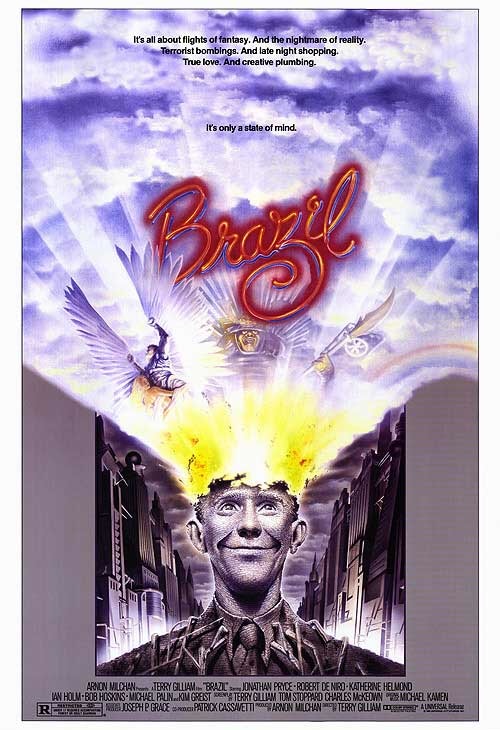
Terry Gilliam’s Brazil (1985) is more than just a film; it's a battleground. A battleground where artistic vision clashed violently with studio expectations, leaving behind a legacy of conspiracy theories, conflicting endings, and a stark illustration of the power dynamics within the film industry. The story of Brazil’s production is a cautionary tale for filmmakers, a rallying cry for artistic freedom, and a fascinating case study for anyone interested in the intersection of art and commerce. It's a film that begs the question: Who truly owns a movie – the director who dreams it, or the studio that finances it?
A visual comparison of the two drastically different endings of "Brazil," showcasing the contrast between Gilliam's bleak vision and the studio's imposed happy ending.
The Dystopian Dream vs. The Hollywood Machine
Brazil, at its core, is a dystopian satire. It paints a picture of a future choked by bureaucracy, technological absurdity, and the relentless crushing of individuality. Sam Lowry, played with a perfect blend of naiveté and desperation by Jonathan Pryce, is a cog in this machine, a low-level clerk who dreams of escaping into a romantic fantasy. However, his dreams become entangled with reality when he encounters Jill Layton, a woman he believes is the key to his freedom.
The film's power lies in its unflinching portrayal of a society where hope is a dangerous illusion. This is precisely what Universal Pictures, the film's distributor in the United States, seemed to misunderstand – or, more accurately, feared. The studio, helmed by Sid Sheinberg, believed that Brazil was too dark, too confusing, and ultimately, too uncommercial for American audiences.
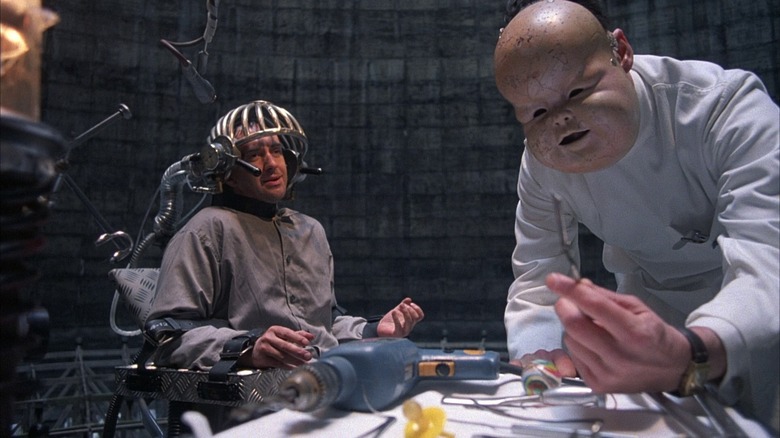 Sid Sheinberg, the then-head of Universal Pictures, who clashed with Terry Gilliam over the film's ending.
Sid Sheinberg, the then-head of Universal Pictures, who clashed with Terry Gilliam over the film's ending.
The Battle of the Endings: A Clash of Visions
The most significant point of contention was, undoubtedly, the ending. Gilliam's Director's Cut ends with Sam Lowry seemingly lobotomized, a blissful smile plastered on his face as he retreats entirely into his own fantasy world. Bombs explode around him, a constant reminder of the oppressive reality he can no longer escape, but within his mind, he is free. He hums "Aquarela do Brasil," the film's recurring motif, a symbol of escape and delusion. This ending is bleak, uncompromising, and utterly devastating. It reinforces the film's central message: in a truly oppressive system, true freedom is impossible.
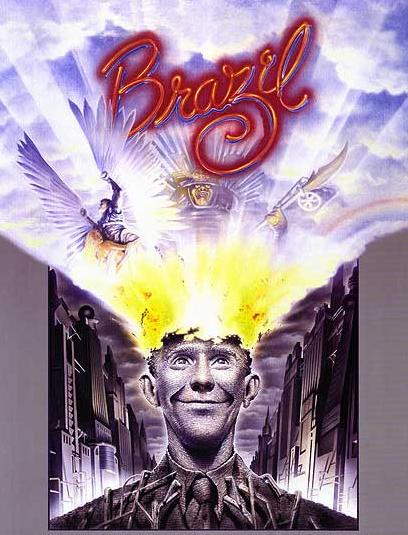 Close-up of Jonathan Pryce as Sam Lowry in the Director's Cut ending, with a glazed-over look and a faint smile, suggesting a complete detachment from reality.
Close-up of Jonathan Pryce as Sam Lowry in the Director's Cut ending, with a glazed-over look and a faint smile, suggesting a complete detachment from reality.
Universal, however, had other ideas. They recut the film, removing approximately 20 minutes of footage and, most crucially, adding a "happy ending." In this version, Sam is rescued, reunited with Jill, and they drive off into the sunset, seemingly free from the clutches of the system. This ending, while superficially optimistic, fundamentally betrays the film's core message. It suggests that escape is possible, that the system can be overcome, and that individual freedom can be achieved within its confines.
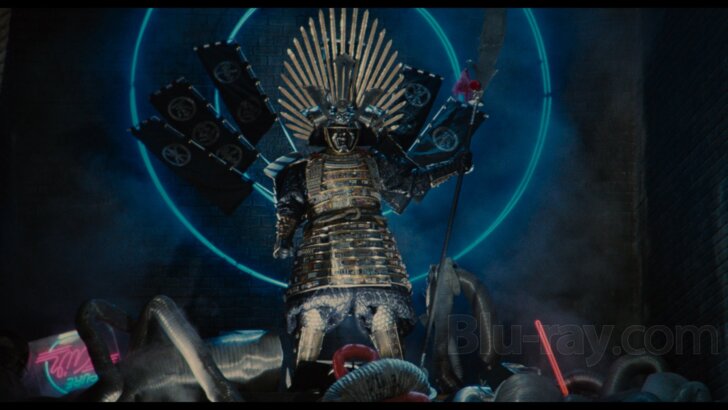 Image of the studio-imposed "happy ending" where Sam and Jill are reunited and driving away, bathed in warm, hopeful lighting.
Image of the studio-imposed "happy ending" where Sam and Jill are reunited and driving away, bathed in warm, hopeful lighting.
Auteur Theory Under Siege: Gilliam vs. Universal
The Brazil controversy is a textbook example of the conflict between auteur theory and the studio system. Auteur theory, championed by critics like André Bazin, posits that the director is the primary author of a film, imbuing it with their unique artistic vision and style. Gilliam, with his distinctive visual style, his penchant for dark humor, and his unflinching exploration of dystopian themes, is a clear auteur.
 Image of André Bazin, the film critic and theorist whose ideas about auteur theory are relevant to the "Brazil" controversy.
Image of André Bazin, the film critic and theorist whose ideas about auteur theory are relevant to the "Brazil" controversy.
By altering the ending of Brazil, Universal directly challenged Gilliam's authorial control. They essentially rewrote the film, replacing his bleak and uncompromising vision with a more palatable, commercially viable narrative. This act can be seen as a form of censorship, suppressing Gilliam's artistic expression in favor of a perceived market demand for happy endings.
Visual Pleasure and Societal Control: The Mulvey Lens
Laura Mulvey’s work on visual pleasure and narrative cinema provides another lens through which to analyze the Brazil controversy. Mulvey argued that classical Hollywood cinema is structured around male gaze, presenting women as objects of visual pleasure and reinforcing patriarchal power structures.
 Image of Laura Mulvey, whose work on visual pleasure and the male gaze provides a framework for understanding the studio's desire for a more conventional narrative in "Brazil".
Image of Laura Mulvey, whose work on visual pleasure and the male gaze provides a framework for understanding the studio's desire for a more conventional narrative in "Brazil".
The studio-imposed ending of Brazil, with its romantic reunion and promise of a happy future, can be seen as a prime example of this. It panders to conventional Hollywood narratives, offering a simplistic and ultimately false sense of closure. It prioritizes visual pleasure and a feel-good resolution over the film's complex and challenging critique of societal control. The "happy ending" reassures the audience that even in a dystopian world, love and freedom can prevail, thus defusing the film's subversive potential.
The "Brazil" Conspiracy: More Than Just an Ending
The story of Brazil’s production is rife with documented disputes between Gilliam and Universal. Production notes reveal heated arguments over the film's length, its tone, and, of course, its ending. Gilliam famously took out a full-page ad in Variety, demanding that Universal release his version of the film. This act of defiance, coupled with the film's eventual "victory" (the Director's Cut was eventually released after critical acclaim and awards nominations), solidified Brazil's place in film history.
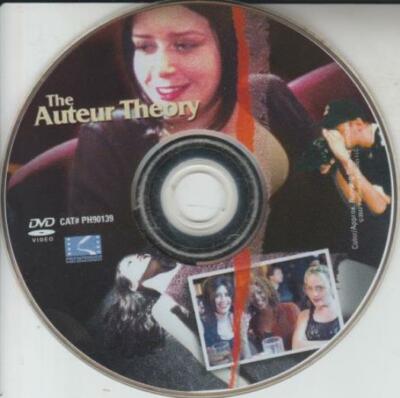 Image of Terry Gilliam holding a newspaper with the advertisement he took out in Variety, demanding the release of his version of "Brazil".
Image of Terry Gilliam holding a newspaper with the advertisement he took out in Variety, demanding the release of his version of "Brazil".
This specific case of studio interference stands out because of the sheer audacity of Universal's actions and Gilliam's unwavering commitment to his vision. It fuels speculation about the power dynamics between filmmakers and studios, raising questions about who ultimately controls the narrative and the implications for artistic freedom in the film industry. The controversy surrounding Brazil highlights the inherent tension between art and commerce, and the constant struggle for creative control in a system driven by profit.
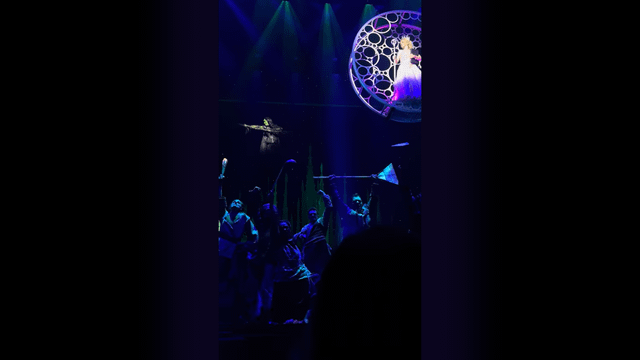 Image of Sam Lowry surrounded by papers and bureaucratic machinery, symbolizing the oppressive system he is trapped in.
Image of Sam Lowry surrounded by papers and bureaucratic machinery, symbolizing the oppressive system he is trapped in.
The Legacy of Brazil: A Victory, a Warning, and a Conspiracy
Ultimately, the Brazil conspiracy is not just about an alternate ending. It's about the power of artistic vision, the dangers of corporate control, and the enduring relevance of dystopian narratives. Gilliam's Brazil, in its original form, serves as a potent reminder of the fragility of freedom and the insidious nature of societal control. The studio's attempt to sanitize and commercialize this vision underscores the constant threat to artistic integrity in a world driven by market forces.
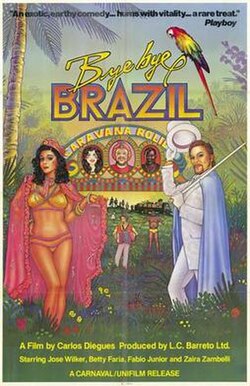 Still from "Brazil" showing a chaotic scene with characters in bizarre costumes and machinery, capturing the film's unique and surreal visual style.
Still from "Brazil" showing a chaotic scene with characters in bizarre costumes and machinery, capturing the film's unique and surreal visual style.
Brazil's legacy is complex. While Gilliam eventually won the battle to have his vision seen, the fact that the studio even attempted to suppress it serves as a cautionary tale. The film remains a powerful example of how art can challenge societal norms and how those in power may attempt to silence dissenting voices. The Brazil conspiracy is a reminder that the fight for artistic freedom is an ongoing one, and that the power dynamics between filmmakers and studios must be constantly scrutinized.